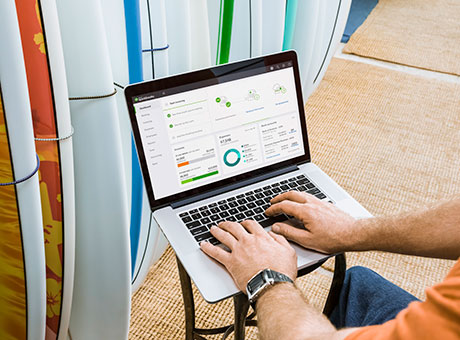When you run a nonprofit or charity, donations and gifts are the lifeblood of your organization, and it’s critical to account for them correctly. In addition, if you or your corporation donates to a charity, you can typically claim a tax credit for the donation.

How to Create Financial Records for Donations
Cash Donations
As a nonprofit, you should account for cash donations just like you account for revenue in any business, entering donations as income on your financial records. That said, you may want to track some cash donations separately from others. If your donors request you earmark funs for a specific purpose, you may want to put those funds in a special account or mark them as restricted on your balance sheet. In contrast, you can enter donations for the general fund under your general account or mark them as unrestricted.
Gifts
If donors give your organization gifts rather than cash, the Canada Revenue Agency requires you to track those donations. As a general rule, you should record a gift at the current fair market value, which is the average price the item sells for in a typical market. Gifts may include capital assets and property, but the CRA does not consider service, gift certificates, or admission fees to special events as gifts. If your donors give you these items, you may want to track them in your organization’s financial records, but you don’t need to report this information to the CRA, and you can’t issue your donors a receipt for them.
Corporate Donations
Donations to a Canadian charity can help reduce your corporate income tax. When you file your T2 tax return, you should submit Schedule 2 Charitable Donations and Gifts to report eligible cash and gift donations to the CRA. If you donate publicly traded shares or stock options, you may incur a capital gain, but luckily, you don’t have to report capital gains on most donated property. There is one exception: if you receive a gift or advantage in exchange for your donation, you may have to include some of the capital gains on your tax return. In these cases, you also need to file Form T1170 Capital Gains on Gifts of Certain Capital Property with your tax return. You should save your donation receipt, and if you donate property that is assessed, save the assessment for your records to justify the cost basis you use when reporting the gift.
Individual Donations
If your business is not incorporated, you can still make donations, but in these cases, you should claim the donation as a personal write-off rather than a business deduction. The CRA allows you to report gifts and donations worth up to 75 percent of your net income, and the agency awards a tax credit based on the total of your donations. Remember, only registered charities and select other organizations can issue donation receipts, and you need to keep these receipts for your records. Whether you run a charity or are donating to one, it’s important to know how to account for donations. Nonprofits need to track this revenue stream closely and show how they used the funds. Individuals and for-profit corporations can also benefit when they file for tax credits.


